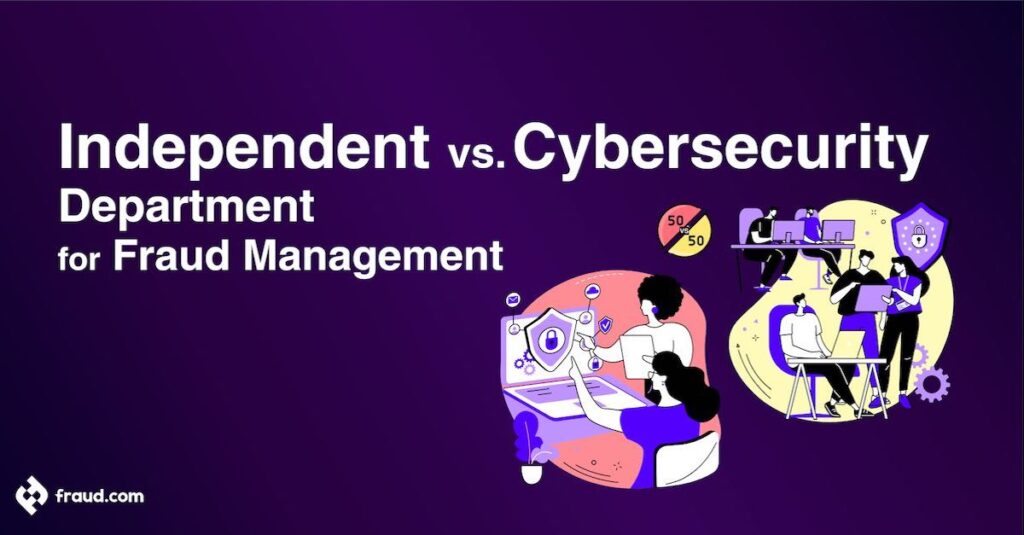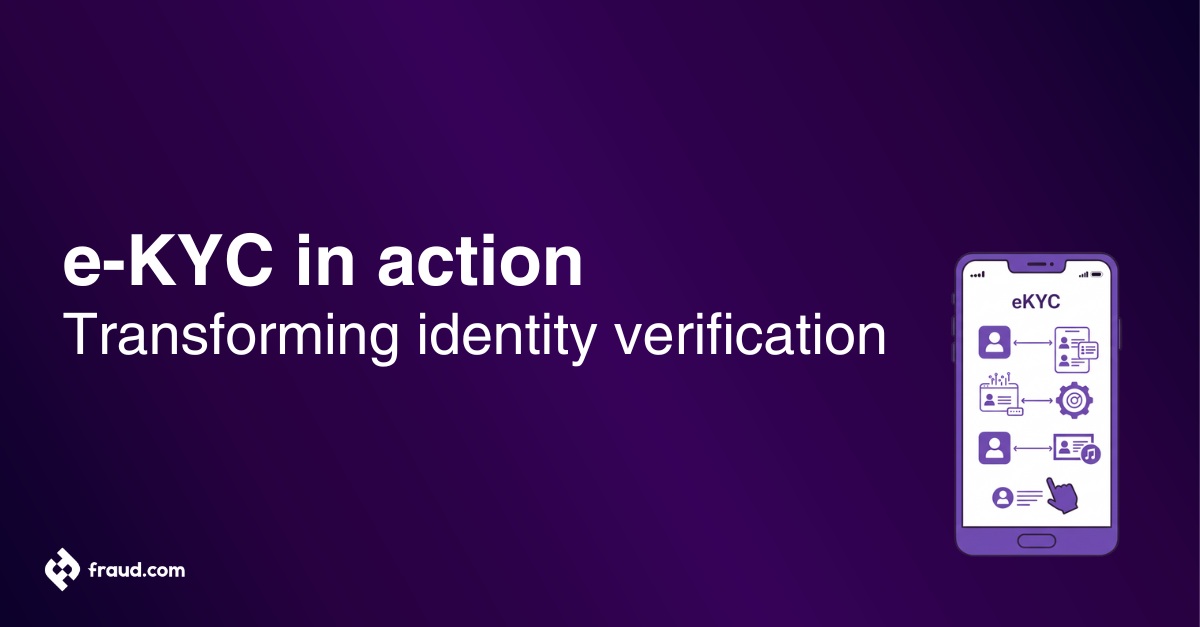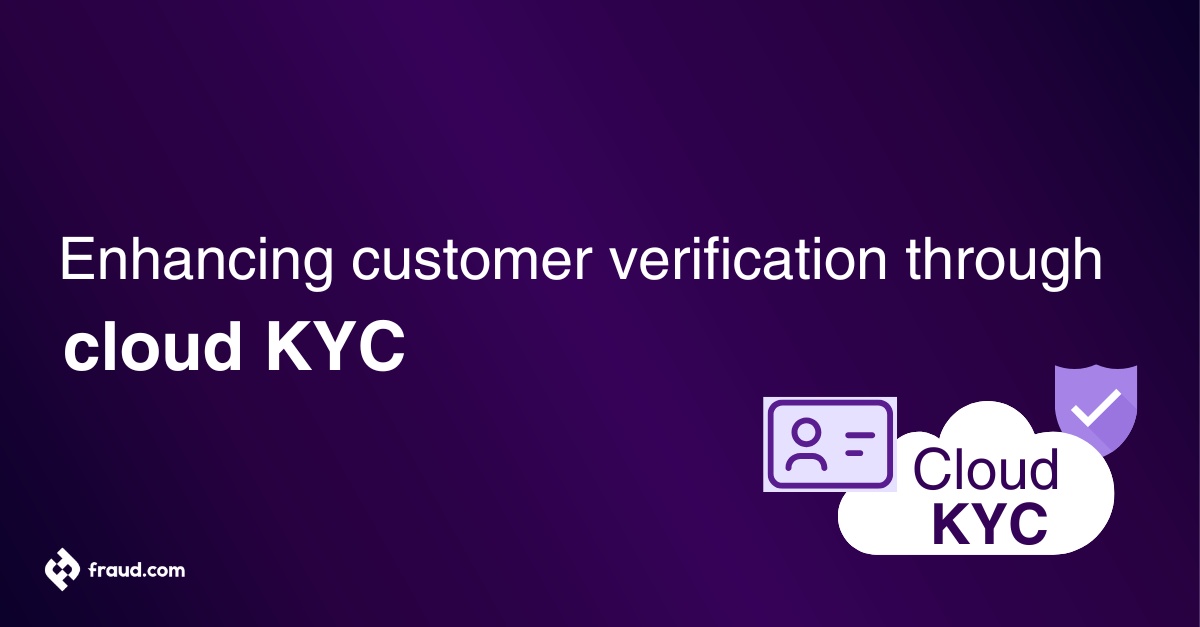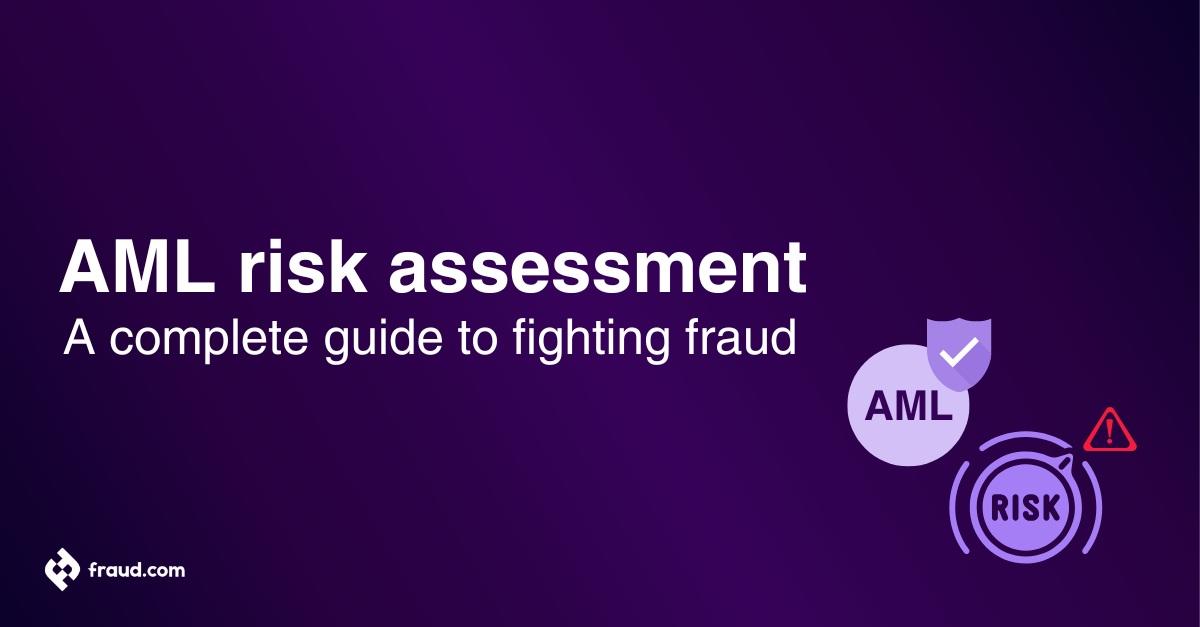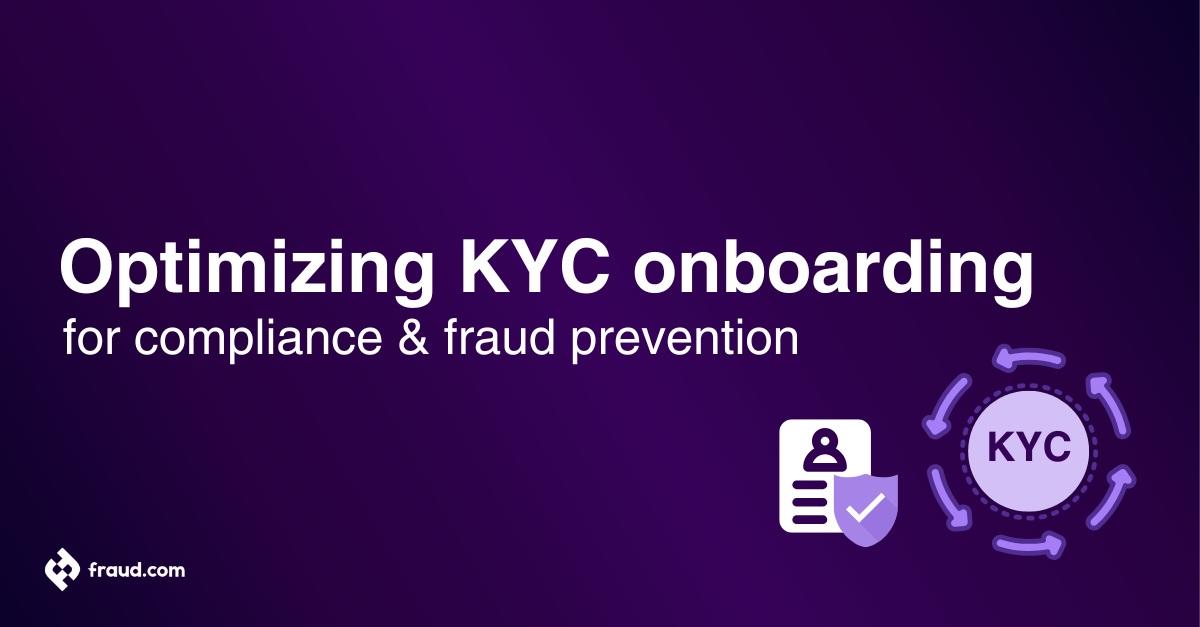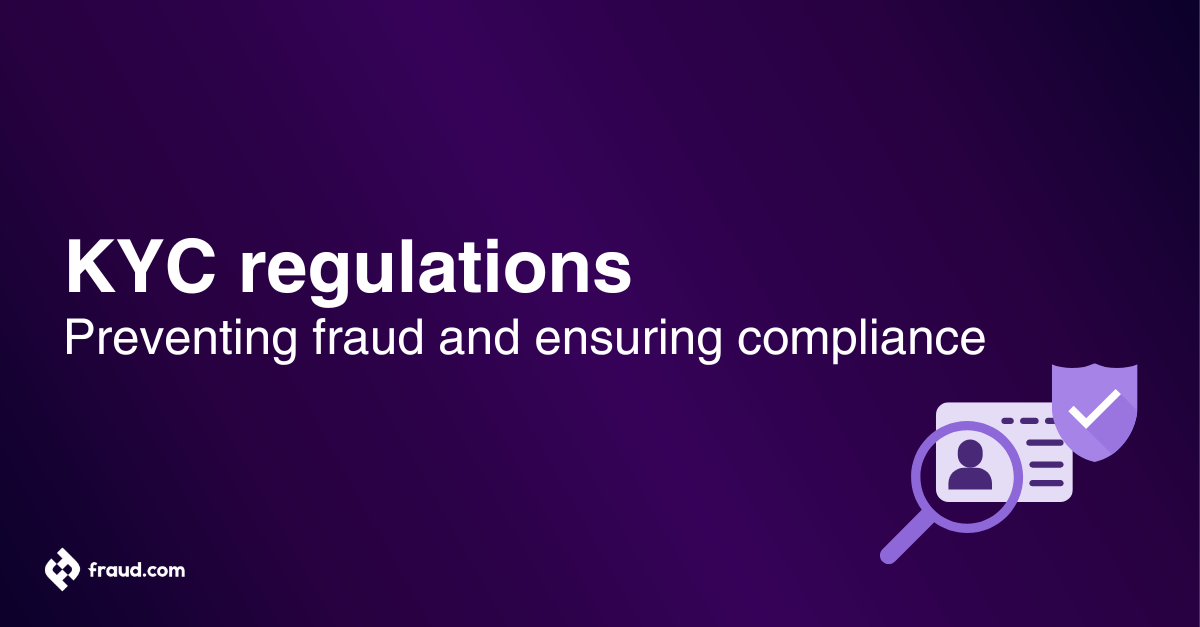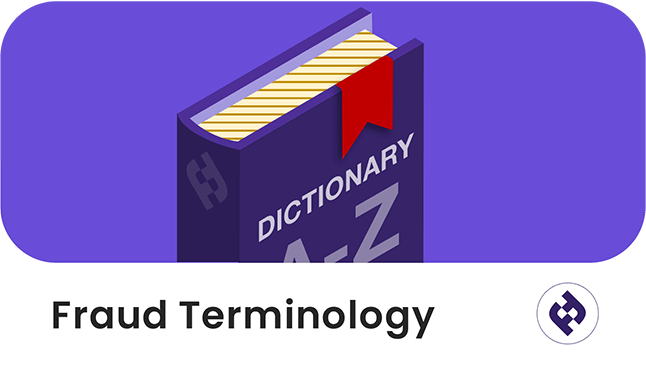Independent vs. Cybersecurity Department for Fraud Management
Fraud management poses an ongoing and dynamic challenge for organizations, demanding a sophisticated and adaptable approach. The strategies used to fight fraud show considerable diversity, influenced by a wide range of elements, with the organizational framework being one of the most crucial. Choices about where to position fraud management in a company – whether it’s under the jurisdiction of Compliance, Finance, Legal, Audit, or within a specialized Cybersecurity Department, have profound implications for a company’s ability to detect, combat, and react to fraudulent actions.
In this article, we will navigate the landscape of organizational approaches to fraud management, with a particular focus on the contrast between establishing an autonomous department dedicated to fraud prevention and detection versus incorporating it into the broader spectrum of cybersecurity. Each path carries its own advantages and disadvantages, subject to the unique circumstances and priorities of a given organization. Variables such as industry sector, company size, regulatory framework, and risk tolerance will all have a crucial influence on the most appropriate choice.
Moreover, we will also delve into potential avenues for enhancing an organization’s existing framework for fraud management. Even the most entrenched systems can gain significant advantages from regular evaluation and adjustment to remain in sync with the changing strategies of fraudsters and the ever-evolving technological environment. By closely examining these crucial factors, organizations can strengthen their protection against fraud and consequently secure their assets, reputation, and the interests of stakeholders.
Table of Contents
ToggleThe fraud management strategy dilemma
Organizations, mainly financial institutions grapple with a critical decision when structuring their fraud management strategy efforts. From preventing fraud to customer experience considerations, key components factor into this decision-making. Some organizations opt for an independent fraud management system solely dedicated to fraud.
Others prefer to incorporate online fraud prevention and detection within their existing cybersecurity department. Each approach carries its own set of advantages and disadvantages, which can significantly impact an organization’s ability to combat fraud.
Are you intrigued by the debate surrounding the best approach to fraud management in organizations?
Join the extended conversation on Emre Sayın‘s LinkedIn post here to engage in this interesting discussion about this important topic. Discover firsthand experiences, share your valuable insights, and engage with fellow professionals. Your perspective can make all the difference in shaping effective fraud prevention strategies. Follow the post and contribute to this vital discussion!
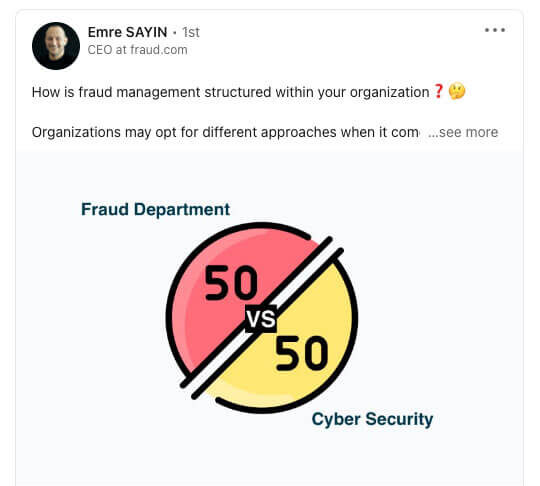
The role of the cybersecurity department in fraud management
When an organization assigns the task of fraud management to the cybersecurity department, it comes with both benefits and challenges. This department is primarily responsible for protecting digital assets and plays a crucial role in safeguarding online accounts and account information from external threats.
They are also responsible for keeping personal information secure, including sensitive data. They use effective methods to prevent fraud such as identity theft and unauthorized access to customer information that may lead to account takeover.
However, there are difficulties in this setup. Balancing the responsibilities of cybersecurity and fraud management can reduce focus, effectiveness, and strain resources. The complex nature of both cybersecurity and comprehensive fraud prevention may require specialized skills, making it challenging for one department to handle effectively. So, while combining cybersecurity and fraud management may seem logical, some organizations must also consider the potential drawbacks of this arrangement.
Benefits of cybersecurity department in fraud management
- Digital asset safeguarding: The cybersecurity department excels at safeguarding digital assets, acting as a robust shield against external threats aimed at compromising an organization’s online accounts and sensitive account information.
- Protection of personal information: One of their crucial roles is ensuring the security of personal information, which is vital in preventing identity theft and unauthorized access to customer information, mitigating the risk of potential account takeovers.
- Real-time fraud prevention: With their real-time monitoring capabilities, they can proactively detect and respond to fraudulent threats, minimizing potential damages and enhancing overall security.
- Cost-efficiency: Consolidating fraud management and cybersecurity under a single department can lead to cost savings through optimized resource allocation and streamlined processes in the short term.
This integration provides organizations with a holistic security approach that addresses both cybersecurity and fraud management, creating a robust defence against the evolving landscape of threats.
Challenges of placing fraud management under cybersecurity
- Limited expertise: The primary challenge lies in the cybersecurity department’s expertise, which is primarily focused on cybersecurity and information security. While they excel in protecting digital assets and securing networks, addressing potential fraud, and managing tasks such as safeguarding personal details require a distinct skill set. Without this specialized expertise, financial institutions may find themselves ill-equipped to effectively combat fraud.
- Resource strain: Integrating a comprehensive fraud management strategy into the cybersecurity department’s already substantial workload can strain their resources. Balancing responsibilities between cybersecurity and real-time fraud prevention may lead to a reduction in focus on either area. This strain can result in potential vulnerabilities, such as exposing debit card numbers to fraudulent activities, which can have a detrimental impact on the overall customer experience.
- Diluted focus: Handling both cybersecurity and fraud management within a single department can lead to a diluted focus. Cybersecurity professionals may be pulled in different directions, making it challenging to dedicate the necessary attention to the evolving landscape of fraud prevention. This diluted focus can hinder the department’s ability to proactively detect and respond to fraud effectively.
- Skill set mismatch: Combating fraud often requires a unique skill set that encompasses not only technical knowledge but also an understanding of fraud trends and patterns. Cybersecurity experts may lack this specialized knowledge, making it challenging to identify and mitigate fraud effectively. This skill set mismatch can result in a higher likelihood of false positives or missed fraudulent activities.
- Customer experience impact: Striking a balance between cybersecurity and fraud prevention is essential to maintaining a positive customer experience. However, the added workload from fraud management can divert resources and attention away from delivering a seamless customer experience. Customers may experience delays, inconvenience, or even security breaches, leading to a negative impact on their perception of the financial institution.
- The complexity of fraud prevention: Fraud prevention is a multifaceted endeavour that involves continuous monitoring, pattern recognition, adaptive strategies and advanced fraud detection to stay ahead of fraudsters. Managing these complexities alongside cybersecurity can overwhelm a department that may not have the capacity or specialized tools needed for effective fraud prevention.
- Regulatory compliance: Compliance with regulatory requirements is crucial in the financial industry. An integrated approach may lead to compliance challenges, as both cybersecurity and fraud management require adherence to different sets of regulations and standards. Ensuring alignment with these requirements can be a complex and time-consuming task.
Navigating these challenges requires a careful evaluation of an organization’s priorities, resources, and the potential impact on its ability to protect against both cybersecurity threats and fraud effectively.
The role of an independent department for fraud management
In the realm of fraud prevention, the establishment of a dedicated department dedicated solely to the management of fraud holds distinct advantages for organizations. Such a department serves as a vital shield against the ever-evolving threats of fraudulent activities. By specializing in the intricacies of fraud detection and prevention, it brings unparalleled expertise to the table.
Moreover, an independent fraud department provides a streamlined and accountable approach to addressing fraud-related challenges. It offers an efficient framework for decision-making and action, ensuring that all aspects of fraud management are handled with precision and diligence. With a singular focus on fraud, this department not only enhances compliance but also enables organizations to respond swiftly to detected fraud, reducing potential harm and losses.
Overall, an independent fraud department represents a cornerstone in an organization’s arsenal against the complexities of modern fraud, safeguarding assets, reputation, and stakeholder interests with dedication.
The advantages of an independent fraud management system
Alternatively, establishing an independent fraud management department provides a range of advantages that can better combat potential fraud:
- Specialization and expertise: An autonomous fraud prevention department enables the formation of a dedicated team of professionals with specialized knowledge in detecting and preventing potential fraud. Their expertise, possibly enhanced by AI and machine learning, can be instrumental in identifying complex fraud schemes, including attempts of account takeover, and protection of card numbers that might elude a broader cybersecurity-focused team.
- Centralized accountability and decision-making: Centralizing fraud prevention and detection efforts under a single department improves accountability and decision-making. It streamlines processes, making it easier to coordinate real-time responses to detected fraud, ultimately enhancing overall performance, information security, and customer experience.
- Enhanced compliance: An independent anti-fraud department stays vigilant on evolving regulations and standards from regulatory bodies. This proactive approach ensures that the financial institution remains in compliance, bridging the gap between fraud and compliance, and reducing the risk of legal and regulatory repercussions tied to online banking accounts and personal information misuse.
- Practical approach: With a focus on fraud prevention, an independent fraud department can respond swiftly to detected fraud. This agility minimizes delays that can arise from distributing tasks across multiple departments and allows the protection of sensitive data like bank account details.
- Adapting your fraud management framework: Regardless of the chosen approach, financial institutions should periodically review and recalibrate their fraud management strategy. Even the most robust systems, enhanced by machine learning, can benefit from realignment to counter the evolving tactics of fraudsters and the dynamic technology used to fight fraud. By making informed choices and adapting to changing circumstances, organizations can effectively shield themselves from the persistent threat of fraud, bolstering their efforts in fraud prevention.
- Customer trust: Effective fraud management under an independent department helps improve customer trust. Customers feel more secure knowing that their personal information and accounts are safeguarded by a dedicated team focused on their best interests.
- Swift and targeted responses: An independent fraud department can react swiftly to emerging threats and adapt its strategies with precision. This agility is vital in countering the dynamic tactics of fraudsters who continually evolve their methods.
- Innovative technology adoption: Independent fraud management departments often have the flexibility to adopt cutting-edge technologies and tools explicitly tailored for fraud prevention. This capability allows them to stay at the forefront of fraud detection techniques and leverage advanced solutions, including AI and machine learning, for more accurate and proactive threat identification.
- Tailored training programs: Specialized teams can design custom training programs for employees to enhance their awareness of fraud risks. This proactive approach empowers staff to identify and report suspicious activities, contributing to the overall effectiveness of fraud prevention efforts.
- Resource optimization: Independent fraud departments can allocate resources more efficiently since their sole focus is on fraud management. This optimization results in cost savings and allows organizations to direct resources where they are needed most, maximizing their fraud prevention capabilities.
- Strategic partnerships: These departments often forge strategic partnerships with external organizations, law enforcement agencies, and industry experts. Collaborative efforts help in sharing threat intelligence, staying informed about emerging fraud trends, and strengthening the organization’s overall defence against fraud.
- Customized risk assessment: An independent fraud management system can develop tailored risk assessment models, ensuring that fraud prevention efforts are aligned with the organization’s specific vulnerabilities and risk tolerance levels.
- Cost-effective: The advantage of saving costs with a dedicated fraud management department in the long term is that as more fraud is accurately detected and prevented while reducing false positives, organizations incur fewer financial losses due to fraud. This results in significant cost savings over time, outweighing the initial investment in the dedicated department and contributing to better overall financial health.
- Improved detection accuracy: With specialized knowledge and finely tuned detection algorithms, independent fraud departments can achieve a higher level of detection accuracy, minimizing false positives and negatives in fraud alerts. This precision contributes to a more effective and efficient fraud prevention system.
- Clear reporting structures: An independent department typically has clear reporting structures and hierarchies designed to handle fraud incidents efficiently. This clear chain of command ensures that incidents are addressed promptly and in a coordinated manner.
- Continuous improvement: Independent fraud management departments are better positioned to foster a culture of constant improvement. They can conduct regular audits, performance assessments, and post-incident reviews to identify areas for enhancement and implement necessary adjustments swiftly.
- Comprehensive fraud expertise: A dedicated fraud management department can accumulate deep and specialized expertise in various types of fraud, including emerging threats and trends. This knowledge is invaluable in staying ahead of fraudsters and minimizing potential losses.
Incorporating these additional benefits into your discussion of an independent fraud management system can provide a more comprehensive view of the advantages it offers to financial institutions in their ongoing battle against fraud.
fcase: The orchestrator solution for fraud management
In the quest to enhance fraud management efforts, organizations can turn to solutions like fcase, a fraud orchestrator that unites data and systems under a single view. fcase responds to threats by fighting fraud through collaboration, offering a unified customer view, and forming central intelligence on existing anti-fraud investments. This approach not only reduces fraud and operational costs but also enhances the customer risk and trust journey.
In conclusion, the choice between an independent fraud management department and combining fraud prevention with cybersecurity is a critical decision influenced by various factors such as industry sector, company size, and regulatory framework. Organizations can bolster their fraud management strategies by periodically reviewing and recalibrating their approach, ensuring they remain agile and adaptable in countering the ever-evolving tactics of fraudsters. By leveraging specialized expertise and innovative solutions like fcase, organizations can effectively safeguard their assets, reputation, and stakeholder interests in the ongoing battle against fraud.

